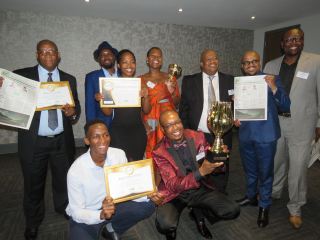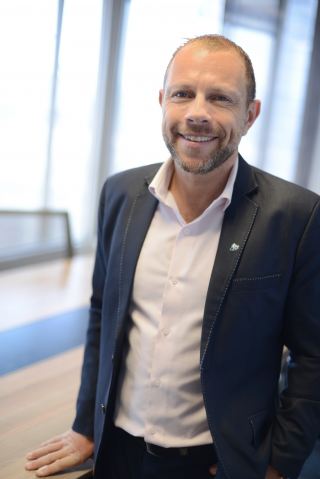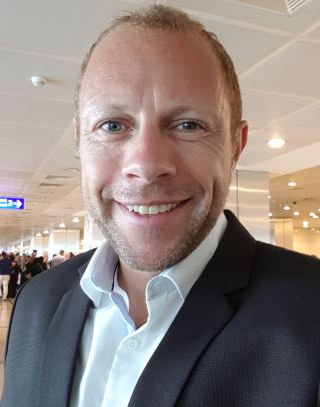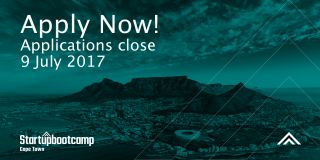Property ownership ripe for exploration for Western Cape investors and first-time home buyers
Cape Town get ready: ‘There is never a bad time to buy property…there are only bad investors who don't know how to take advantage of the opportunity.’
With pivotal elections on the horizon and a daily news stream fraught with negative economic sentiment, it is no surprise that South Africans are tiptoeing around potential investments and adopting a ‘wait and see’ approach.
Yet with recent claims from the City of Cape Town that homes in Cape Town have increased in value by 34% in the past three years, there is undoubtedly no time like the present for would-be property investors.
Wealth Alliance, an organisation that empowers individuals to change their perspective on traditional wealth creation, offer property investment seminars, masterclasses and mentorship programs. These programs will now be available in the Cape Town area, starting with ongoing free seminars* for anyone interested in the key to building wealth through property, regardless of industry experience.
These programs are carefully designed to assist entrants in the property sector, and therefore cover key aspects of the property market:
- Areas in South Africa where you’re likely to find the best property deals, and which finance strategies will help you finance your investment;
- Best Cape Town neighbourhoods to invest in as well as informal settlements ripe for investment
- Various investment strategies including back-to-back deals, capital flips and how to invest in property without any of your own capital
- Different types of properties to invest in, from residential to Airbnb and commercial
- Building your network, finding and financing property deals
According to property specialist and Wealth Alliance co-founder, Sylvia Koketso Milosevic, ‘there is never a bad time to buy property…there are only bad investors who don't know how to take advantage of the opportunity.’
As an entrepreneur who has boldly entered the property market and reaped the rewards, Sylvia now actively shares her learnings and provides people with practical tips and advice. Drawing inspiration from Napoleon Hill’s legendary bestseller, ‘Think and Grow Rich’, she runs a series of dynamic property investment seminars and training sessions. The seminars apply the 13 classic principles of ‘Think and Grow Rich’ to the local property market, and demonstrates how new investors can successfully negotiate the property sector.
“While it is certainly a difficult economic environment for investors right now, we believe that with the right tools and knowledge, South Africans can benefit from the current downward trajectory in property prices - and turn their financial goals into reality,” she says. “We teach our students that by applying the right strategy, regardless of the market conditions, they can achieve outstanding returns.”
According to Milosevic, “investors should combine strategies that will have you making money from day one, so it doesn’t matter if the market declines, you are still making money every single month, down the line, until there is an upswing again.”
Moreover, declining house prices are not necessarily so negative - as it allows first-time homebuyers to enter the housing market at cheaper prices. They can then benefit from the uptick when it comes. Notably, the recent budget speech highlighted some positive socio-economic investments on the horizon which speak to a brighter future ahead for savvy investors.
Regardless of the current political status quo, however, it is critical that potential investors arm themselves with the knowledge and know-how to turn property into smart investments – despite difficult macroeconomic conditions. “We are thrilled to be able to share our knowledge and experience with potential investors in and around Cape Town, and to unlock the infinite opportunities that lie within the local property sector,” says Milosevic.
Wealth Alliance seminars are now available in Cape Town, Johannesburg, Durban, Polokwane and Venda, with new markets to be launched soon. To find out more about Wealth Alliance and to book for a complimentary Think and Grow Rich property seminars visit http://www.wealthalliance.com and http://www.thinkandgrowrich.co.za/
Media Contact: This email address is being protected from spambots. You need JavaScript enabled to view it.
CloudOne.mobi secures major investment to boost its cloud-based business solutions
Cape Town-based CloudOne Technologies Pty Ltd, trading as CloudOne.mobi, has announced that it closed two funding rounds totalling R34m at the end of 2018. The investors include Investec Private Capital, through its Emerging Companies mandate. The investment will be used to help scale out and grow the business more aggressively. CloudOne.mobi was founded in October 2014 with the mission of re-inventing the Point Of Sale (POS) experience.
Founder and CEO Dana Buys has successfully started and sold a number of software businesses since launching his first business while studying at the University of Cape Town in the early 1980s. Subsequently a hospitality business owner, among other interests, he became frustrated with poor levels of technology, particularly related to POS. Buys is passionate about customer service and wanted a solution that would improve the speed and accuracy of serving customers.
"Speed and accuracy deliver a win-win for both business and its customers,” he says. “Happy customers spend more and spread the good news via word of mouth. Accurate orders reduce costly mistakes and improve profitability. It’s hard to beat if you can make the solution easy-to-use and affordable to own!” He continues, “There is massive opportunity to deploy affordable Cloud and mobile technology in Sub-Saharan Africa. The Cloud solutions model allows us to eliminate many of the headaches experienced by SME businesses which often lack strong IT skills. We develop the , keep the systems up to date, manage the databases and integration to external solutions, perform regular backups, and enforce security.”
CloudOne.mobi has developed an advanced cloud-based Point of Sale solution called TallOrder for SME businesses across the hospitality, retail and service segments. TallOrder delivers Cloud benefits, along with robust offline capacity to deal with the relatively slow, less reliable and costlier Internet prevalent throughout emerging markets. Buys explains that similar solutions developed in the United States and Europe assume an always-on, fast and low-cost Internet which is not yet the case in Africa and other developing markets.solution
CloudOne.mobi says TallOrder is easy to deploy, easy to learn to run, and operates on Microsoft Windows, Apple's iOS, and Android devices. It is designed for traditional point of sale stations, tablets and even smartphone-sized devices. The system supports mobile use, which boosts the speed and accuracy of customer service. "TallOrder replaces expensive upfront license and installation fees with low monthly or annual fees, based on the number of devices in use. This opens the market to many businesses which previously could not afford nor cope with the older technology" says Anna Groenewald, COO and co-founder at CloudOne.mobi.
According to Meiring de Wet, Chief Technology Officer at CloudOne.mobi, "SME companies by themselves will never generate enough data to be as truly useful as Big Data. We have built TallOrder in a way that allows us to aggregate the small data coming from SME businesses into Big Data".
“This investment is an important opportunity for CloudOne.mobi to expand our software developments and allow us to rapidly scale our marketing and sales efforts and increase our future partnership opportunities,” stated Groenewald. Learn more about CloudOne.mobi and their hero products TallOrder Point of Sale and PageMan Digital Signage on their website, https://cloudone.mobi/ or contact them at This email address is being protected from spambots. You need JavaScript enabled to view it./ +27 (0) 728630116
Transport Sector Retirement Fund recognised by industry peers as innovative trailblazer
Mover-shaker Transport Sector Retirement Fund recognised as national industry leader
The Transport Sector Retirement Fund (TSRF), a non-aligned, standalone fund whose shareholders are its members, has been recognised by its peers as an innovative trailblazer in the industry. In January this year, the TSRF was awarded top honours at the Institute of Retirement Funds Africa (IRFA) annual Best Practice Industry Awards for 2018.
The TSRF received the overall Gold Standard Award for meeting all the criteria in the following areas of excellence: governance; transformation; stakeholder engagement and education; investment practice, trustee development; and financial management and reporting. The fund also won the Investment Practices category and received a Best Practice certificate in the Transformation category.
Joe Letswalo, principal officer of the TSRF, says the fund differentiates itself from many others with its single-minded focus on maximising members’ benefits and making a tangible difference in members’ lives. “We have a very strict impact-driven investment orientation which enables us to achieve our set growth targets. We recently improved members’ death and disability benefits from two times annual salary to three times annual salary, and funeral cover from R30 000 to R50 000 for the member and spouse at no increase in costs to them. All the proceeds of the funds’ initiatives are reinvested and we pursue ways of finding savings, such as the more than R700-million we have generated through our self-insurance initiative.”
The fund has about 70 000 members, 70% of whom are truck drivers working in one of the many sectors in the transport industry. “With them in mind we have developed a responsible-investment strategy to build truck stops that ensures our members and the broader transport sector community are able to park and sleep safely and also have access to accommodation, refueling, mechanical services, primary healthcare- and appropriate nutrition facilities,” says Letswalo. “The first of these truck stops, the Harrismith Highway Junction Truck Stop, is one of the biggest in Africa and has provided a more than 25% return on investment over the past 12 months. It is now one of the largest work providers in Harrismith, employing 200 locals.”
Letswalo is justifiably proud of the TSRF’s engagement and education strategy, which strives to improve members’ knowledge of fund benefits and investments. The preferred communication method is SMSes, with online media, including the TSRF’s website and Facebook, also being successfully deployed in staying in touch with members. Regular clear communication messages help to keep members abreast of an array of financial concepts. “We don’t pay lip service to effective stakeholder engagement,” says Letswalo. “The majority of members access the internet via their cellphones and so we’ve adapted our communication strategy accordingly. Our website is now the top source of information on the fund. Members prefer to access fund-related information by this means. We are talking directly to them.”
As far as transformation is concerned, the TSRF has placed a target of more than 70% of its assets to be managed by black-owned investment firms. “To date 75% of the fund’s assets are invested with black-owned and transformed managers,” says Letswalo. “We’ve extended this to our stockbroker policy, which gives clear guidelines on the percentage allocation given to black-owned firms. In addition, all the asset managers appointed by the fund allocate more than 50% outsourcing to black-owned business.”
The fund’s achievement of its transformation objectives has not always been smooth sailing. A number of initiatives had to be adopted to ensure the sustainability of the transformation success. The objective was for the fund to walk the transformation journey with its appointed asset managers to ensure success.
“We realised that the playing fields for our appointed asset managers were not conducive to maintain the success levels, especially with regards to competition with the more well-resourced and established traditional asset managers, says Letswalo. “So, the fund convened an indaba with all the appointed asset managers whereby issues related to performance, good governance, resourcing, support and best practice were discussed. It was important that the asset managers understood that the fund’s success is also their success. At this meeting, they again unanimously pledged to uphold best governance procedures and to cooperate to advance the fund’s transformation agenda.”
Furthermore, TSRF’s robust internal controls, including frequent internal audits to evaluate best business practices and address potential risk factors, allow the fund to excel in good governance and compliance. The fund received clean internal and external financial audits for the past eight years.
Having grown the TSRF’s assets from R2-billion in 2013 to R7.5-billion in 2018, Letswalo is confident that the fund’s outlook is positive and its various strategies on target. “We are definitely shaking up the industry with our nimble investment strategies and people are really starting to sit up and take notice. We run a clean business where we place our members at the heart of it, and we are grateful that the industry has given us recognition for it,” says Letswalo.
TRADING – THE MARRIAGE OF KNOWLEDGE, INTEREST AND UNDERSTANDING
Make 2019 your year to commit
Never before has trading been so lucrative and so exciting – 2018 has been an incredible year of ups and downs and 2019 promises to be even more interesting, says Daniel Kibel, CEO of top rated online trading company CM Trading.
“While trading can be complicated and daunting, it can also be exciting,” says Kibel. “If you compare trading with a relationship (which can also be complicated and daunting), things can become a lot clearer. I know it sounds strange but with a relationship and with trading there are three key steps, as I see it:
Step 1: Falling in love. In a relationship you meet someone, get to know them, become familiar with them, their flaws as well as the things that you love about them – one of the most important steps in the relationship – you don’t invest yourself if you don’t understand the information you receive. It is the same with trading, you need to get to know your market, the shares or the commodities that you are looking at trading in. If you don’t understand it, don’t invest in it. Having said that, if you learn more about the market you’re interested in and completely immerse yourself in the ups and downs, your relationship with trading will be a successful one.
Step 2: Getting engaged. Once you are happy with the information you have learned, it is important to start to commit, in a relationship, the next step would be getting engaged. In trading it is being committed to a particular commodity, market or share - it is so much easier to trade in something that you know and are committed to.
Step 3: Getting married! You never know what goes on inside a marriage until you are in the midst of it. Take the plunge! Once you know what you are doing, where you are going and where you can see yourself in 10, 20, 30 years time, then trading is for you. Make no mistake that - like a marriage -the markets are volatile, but with high risk there comes high potential profit and trading really is a mix of different entities. Whether it is the economy, the political situation, corruption, fake news….it could be anything, but taking that first step is the most important and I believe the key to a successful relationship, whether it be online trading or finding your wife or husband!
“I know that the analogy is unusual but if you think about it, it is quite accurate. I am so excited about the opportunities and trends I foresee for 2019 – market changes, political changes, social changes all play a part in the trading arena,” concludes Kibel.
Anyone wanting to start trading can contact CM Trading on www.cmtrading.com or email This email address is being protected from spambots. You need JavaScript enabled to view it..
About CM TradingAn FSCA-regulated company, CM Trading offers the best trading experience both locally and internationally and is a source of information and a conduit to successful trading on any and all trading platforms including: Forex Trading, CFD Trading, Stocks, Cryptocurrencies, Indices Trading, Commodities Trading and Currency Trading.
For more information on CM Trading please visit their website https://www.cmtrading.com/, or contact them on +27 10 500 80 26 or via email This email address is being protected from spambots. You need JavaScript enabled to view it. . You can also follow them on Twitter @CMTrading_FX and Facebook @CapitalMarketsTrading.
Post SA Investment Conference, AfricArena, Wesgro and Silicon Cape Presents Deep-Dive into Tech Investment in Africa - African tech startups represents less than $50c per capita
AfricArena, Silicon Cape and Wesgro host expert discussion and release research indicating funding raised by African startups to increase by 100%+, exceeding $1 billion for the first time.
Tuesday, 30 October, Cape Town – In the wake of the SA Investment Conference that took place last week, AfricArena, Wesgro and Silicon Cape hosted a press conference at the InvestSA One Stop Shop in Cape Town, making public new partnerships for the conference and discussing the role conferences and accelerators like AfricArena play in attracting investment to the continent.
Partech Ventures’ latest annual funding report shows that venture capital funding in 2017 reached $560 million, recording 53% year on year growth. South Africa, Kenya and Nigeria dominate with 6% of total funding. Francophone Africa is accelerating with 14% of the deal transactions and financial inclusion (off-grid tech, fintech and insuretech) representing 45% of deals.
The track record shows the trend is that African tech entrepreneurs are raising more and more funding. Yet, the amount of investment going to African tech startups represents less than $50c per capita whilst in Europe the investment is $50 per capita in the USA $150. Currently, less than 1% of global tech investment is into Africa whereas on the global scene, in 2017 the USA attracted $74 billion, Asia $71 billion and Europe nearly $18 billion.
“If we are to create the next generation of successful entrepreneurs competing at a global scale – clearly the challenge remains as an input and output measure to increase the level of capita that African startups attract,” states Christophe Viarnaud, CEO of AfricArena and Methys. ““It is predicted that in 2050 and 2100, there will be more than 50 cities with more than one million people on the African continent, and the majority of the most highly populated cities in the world will be in Africa. This is a very important factor in terms of being a fundamental underlying trend which is going to drive increasing investment in Africa, therefore we foresee the investment in African tech startups to exceed the $10 billion annual mark in the next decade.”
Based on internal research conducted in 2018, AfricArena, Silicon Cape and Wesgro expect the funding raised by African startups to increase by 100%+, exceeding $1 billion for the first time and achieve $1 dollar per capita, positioning Africa as the fastest growing area in the world.
“Another interesting thing is the emphasis we put on taking our startups to the bigger stages outside of the continent,” adds Danai Musandu, Investment Associate, Goodwell Investments BV, “You always find more people rushing to go to Silicon Valley to go see where the big stage and the content is. But we need to have a change of perspective and a change of attitude, where people will say ‘We’re going to Africa, where the big stage of the future is’. The biggest barrier is our perspective and we need to change that perspective.”
AfricArena is a pan-African ecosystem accelerator whose mission is to help African startups access market and capital. The primary outcome measure is investment deals done around the event.
AfricArena 2018 Announcements
Over 70 start ups from over 30 countries will attend, competing in 11 open innovation challenges
In partnership with We Think Code, AfricArena will run a hackathon on a mobility challenge for the City of Cape Town
EM Lyon, a world-ranked business school, joins as academic partner and will stream AfricArena live on its Casablanca, Lyon and Singapore campuses
Over 100 investors from US, Europe, Africa will attend or follow on the live streaming of the pitch sessionsAfricArena announced partnership with Deep Tech platform ‘Hello Tomorrow’ and a Deep Tech Africa challenge that will take place on Day 2 of AfricArena.
Silicon Cape members to receive early bird special of 50% off AfricArena tickets
EM Lyon is an international business school priding themselves in “making entrepreneurs for Africa”. They capitalize on the worldwide-recognized experience and quality of their programs and offer both students and corporations content that is tailored to their context and to their problems. EM Lyon is fully in line with their signature "early maker": a school that tries, investigates and innovates far ahead of others.
Hello Tomorrow organises mentorship programs and a series of events around the world, as well as educating and consulting relevant stakeholders on emergence of deep technologies with the platform fast becoming a key reference in deeptech innovation and entrepreneurship.
Sarah Pedroza, Managing Director of Hello Tomorrow, states: “Deeptech innovation happening today knows no borders. But the opportunities and resources to catalyze these solutions are unevenly distributed. We need to give better tools to deeptech entrepreneurs in ecosystems that are booming, connecting them to a global network of industry leaders, investors and policy makers in order to bring their concepts to market. We’re excited to partner with AfricArena, joining their flagship event in one of the biggest tech hubs in Africa, which is a great opportunity to bring key stakeholders together.”
Finalists for the internationally sponsored challenges were also announced:
VINCE ENERGIES CHALLENGE – How to make energy more accessible in Africa thanks to energy efficiency solutions, energy flows optimization blockchain and/or AI - Rensource (Nigeria), BIG POT – Nigeria, Oniriq – Senegal
SAINT-GOBAIN CHALLENGE – A solution to upgrade professionals’ skills across Africa - Syafunda (South Africa), The Student Hub (South Africa), Ceed Learning (South Africa)
VIVATECH CHALLENGE – How AI can help generate a self-sustaining growth in the AgriTech industry - Agrocenta (Kenya), Homefarm (South Africa), Aerobotics (South Africa)AfricArena will take place on 15 & 16 November.
More information available at www.africarena2018.com
-- ENDS --
For more information on AfricArena or this press release, please contact:
Mika Stanvliet | This email address is being protected from spambots. You need JavaScript enabled to view it. | 081 534 6237
About AfricArena:
Celebrated as the largest tech ecosystem accelerator on the African continent, last year’s edition of AfricArena saw more than 80 startups presenting to over 100 investors with 25 countries being represented and over $2M worth of deals done. The conference serves as a platform for the continent’s best startups and innovators to showcase their world-class talent in front of an audience of both local and international investors. AfricArena is the ultimate deal-flow platform, bringing investors and startups together in one central location.
The challenges run by AfricArena are sponsored by Vinci Energies, AirFrance, Engie, Sanofi, Leroy Merlin, the City of Cape Town and RCS.
The conference is anchored and endorsed by corporate sponsors and partners La French Tech, Silicon Cape, Wesgro, SEDA, and will be covered by several media such as Techcrunch, Les Echos, Maddyness, Fast Company and many others.
Africa's First True Cryptocurrency to be Released in 2019
A new, highly-efficient mobile blockchain developed in Africa is set to acquire large-scale consumer adoption by 2021
Monday, 23 October 2018: DéMars (DMC), a mobile money platform and new blockchain protocol for the young emerging market is lite, fast, scalable, private, secure and virtually free. It’s also the first of its kind developed in Africa.Until now, various technological issues have held back large-scale consumer adoption of blockchain technology. Many early adopters have abandoned Bitcoin, Ripple, and Ethereum due to poor user experience.
DéMars provides a new infrastructure, the beta version of which will be revealed by the end of Q2 2019.The new technology aims to deliver financial services for the 1.7bn primarily young, unbanked adults in developing markets like Sub-Saharan Africa, of whom two thirds own a mobile phone. The “Banking as a Service Platform” will reduce the high cost of remittances to and within developing markets and enable access to simple lending, insurance and savings products. This is made possible via a smart contract escrow feature, where you can place a classified advert on the network and trade goods, services and cash with others. The solution responds to the resultant demand after global products failed to provide any real utility for the African consumer since they aren’t designed for a data constrained environment. In addition, global products don’t support micro transactions and rely on credit card payments.
The Founder of DMC, a South African now residing in Mauritius, Shaun Burrow, a banker by profession, states: “I started researching the entry-level market, and I was simply blown away to learn that 1.7 billion adults don’t have access to basic financial services and to learn that in the remittance space, families are paying about 45 billion US dollars a year in fees on the funds they are sending home. This is money being diverted from the poorest of the poor. The cost of payments to Sub-Saharan Africa and within Sub-Saharan Africa are the highest in the world, they range from 10 - 20 % of the money being sent home. It’s simply an unjust tax on ordinary, hardworking people.”
A mobile first for Africa
DéMars has worked out a more efficient way (versus other protocols like Bitcoin and Ethereum) to transfer data and validate transactions. The key innovation is a novel blockchain protocol which leverages a hypercube distributed hash table (similar technology to that used in file sharing speeds up the network and allows it to scale efficiently.All transactions are completely private as they are only stored on your mobile phone as unlike in the case of bitcoin or Ethereum it is not necessary to download the entire blockchain, which is a complete waste of data. There is also no centralized or decentralized servers as the network is stored and “lives” on the users’ phones. This means it’s completely distributed and free of censorship.
Best of all, the network and application are free and it is owned by its users. All transactions are virtually free too. All you need to access it is the native currency, DMC.
Only 10 Billion DMC, the cryptocurrency, will ever be issued, so there is a limited supply. The project is currently pre-selling 8 Billion coins to raise funds for further development with an initial selling price of €10 (R170) for 1000 coins. The price will increase by 10% for each round of 500m coins sold.Once deployed, entrepreneurs and developers will be able to build apps and offer services on the network too.
Trade local, pay global
The new digital currency falls under all three categories of digital currency. It has transactional uses, like Bitcoin. It’s the native currency of a platform, like Ethereum, and it’s has utility as it is designed to fulfil a specific task, like Ripple
A new global currency is under construction
The new currency has features that cross multiple traditional forms. In evaluating this new currency, we should rethink everything. Technology is fundamentally changing financial interaction and the new peer to peer decentralised currencies, including DMC, are taking the lead in this transformation. This is a currency you own and you control. No bank or government can take it away from you and you can choose to exchange it with whomever you please.
“The current financial infrastructure is like an old road, full of potholes, tolls and dilapidated petrol stations. DéMars is digging the tunnels and laying the sleepers to build a new railway line - in fact, it’s more like a hyper loop. And DMC is the electricity which will power the new system. It’s a new high-speed train with better and more convenient stations,” concludes Shaun Burrow, Founder of DMC.
ENDS
Editor’s Note
About DéMars
DéMars is a next generation blockchain protocol. The infrastructure is designed to reduce data trans-fers and energy consumption. The network's design enables it to run on decentralised mobile phone nodes, whilst maintaining a high level of cryptographic security and protection from double-spending. The protocol is designed for micro-currency exchanges and payments in a distributed and decentralised marketplace. As the network grows, through use of our Application, the technology can be extended to informal trades in goods and services, micro-lending and to insurance con-tracts.
For all press enquiries please contact:
Mika Stanvliet | This email address is being protected from spambots. You need JavaScript enabled to view it. | 081 534 6237
What is Crypotcurrency?
The digital coin has revolutionised the world of finance. Designed to be transferred digitally between counterparties, cryptocurrencies are well suited to investors who are keen on technology and the currency markets. But what about the ‘lay person’? Many of us don’t know what cryptocurrency is and if there is a future in it.
Daniel Kibel, Director of CM Trading gives us some insight into cryptocurrency.
“The definition of crypto is ‘something concealed’ and that is exactly what we are dealing with here, cryptocurrency is just that – it is virtual and as such it is very difficult for people to get their heads around. We are so used to going to the bank for our money and trading in shares that have a tangible asset behind them, but crypto has turned this all on its head.
“Cryptocurrency is not regulated as yet and everything is hidden and controlled by the users. We are dealing with digital currency. As this is such a foreign concept to most people, we have initiated a specific cryptocurrency trading programme to provide the correct support and guidance to the trader to ensure that they are aware of the highs and lows of investing in this exchange.
“While digital currencies - such as Bitcoin - are most certainly the future of trading and even eventually of banking, it is important that people understand the intricacies of the resource before you delve in.
“If we look at the very basic and probably one of the first virtual currencies – the electronic wallet – it has taken years for individuals to understand the advantages of using this method of payment. Families in South Africa no longer have to send cash to their loved ones over the border, they just use electronic money and even grandparents, with a phone, have access to funds - it is a whole new world and it is working!
‘’Investing in cryptocurrency is similar to any other investment and money can be made daily when trading correctly - once the potential investor is aware of that, the more return they will see. The concern with investing in any cryptocurrency is the unknown; which is why it is so important to have a partner that knows the market and has access to the latest prices and the latest trends. Most significantly, it is important that the investor themselves understands the market and what they are getting themselves in to.
Depending on the cryptocurrency you choose – and the public is spoilt for choice - Bitcoin, Dash, Buzzcoin, Gincoin, Criptoreal, ETH and hundreds more - each has their own investment value. Some offer initial investments as little as 10 cents (but then the returns are much lower), to thousands and then to hundreds of thousands, therefore one can see how important it is to understand the market, otherwise the losses can be just as big as the profit. Don’t try and do it yourself! CM Trading provides a reliable information source for potential investors through their unique software solutions and by providing free webinars, training videos, technical analysis and e-books.
“Cryptocurrency is the future of trading, it is the future of currency and traded responsibly and with the right guidance could result in a nice nest egg, but it’s important to do it responsibly,” concludes Kibel.
General Cryptocurrency facts:
Bitcoin (at the time of writing this article) is currently trading at R107 298,81 for one Bitcoin.
Bitcoin is illegal in seven countries including Iceland; Vietnam; Bolivia; Russia; China.
Cryptocurrency is not issued, endorsed or regulated by any central bank. It is created through a digital process known as mining.
Mining is the process by which transactions are verified and added to the public ledger known as the block chain. Anyone with internet access and the correct hardware can participate in mining.
For everything you ever wanted to know about Bitcoin and cryptocurrency, look no further than CM Trading. The expertise, advice and guidance that is provided by this leading local and international online trading company is unparalleled. From the novice to the experienced investor, CM Trading is the ideal online trading solution.
Anyone interested in more information about cryptocurrency or want to start trading can contact CM Trading on www.cmtrading.com or email This email address is being protected from spambots. You need JavaScript enabled to view it..
World Debt and Investment: risk and reality
“Everything we get, outside of the free gifts of nature, must in some way be paid for.” ~ Henry Hazelitt ‘One Lesson: The Shortest and Surest Way to Understand Basic Economics’
Debt is a complex issue – and depending on how it is controlled – can have either positive or negative effects. In its simplest form, debt could well look like this: if you owe more money than you earn, you are bankrupt, actually poor. Yet the world seems determined to ignore this reality and continues to spend beyond means and borrow beyond ability to repay. The effect is the same whether you’re an individual, a company, or a country.
The tatters of wealth
There is a lot of talk about ‘rich’ countries – but in reality, are they? When a country has borrowed beyond its means to pay back the loan, and is carrying an impossible repayment load of billions and trillions, would you call that country ‘rich’ merely because it displays a comfortable or even extravagant lifestyle? Before you judge any entity’s wealth status, you should look at what is owed against income – that way you might look at many ‘rich’ countries in a different light; the US, UK, France, Spain, Italy and several others might just surprise you.
Between the years 2000 and 2009, total global credit grew from $57 trillion to $109 trillion. The scary thing is that this reflects debt burgeoning at around double the growth in economic activity – in other words the debt is growing faster than money is being made to pay it off. The alarm bells are ringing. Why does this happen?
Like all debt traps, one is sucked in, thinking that eventually there will be enough money to pay off what is owed – but in the meantime one will have the comfort of material possessions and services one wants. Governments invest in debt because they believe that, while giving society the benefits they demand, the economic growth derived from the investment of this borrowing will provide grist to economic activity, which in turn will produce more than enough to pay back the loan.
A leap of faith
So debt can be useful. It helps to accelerate spending – thus generating economic activity, creating jobs, and meeting the public’s demands through the provision of cheap or free public services. Indeed, debt handled well can stimulate enough busyness to produce good returns and therefore not only the ability to pay back the loan, but also enough to pay the interest on that loan.
But here’s the rub: the build-up of debt over the last 25 years has been excessive, ballooning to numbers that countries can find no way of paying back. Indeed, sometimes they borrow more money to pay back loans that have reached payback date and which carry further substantial financial costs if not met. These governments scrabble to maintain their welfare systems and standards of living while finding themselves at the mercy of big lenders, rising interest rates, and financial penalties which obviously they cannot afford. Greece is a prime example of this.
So what can be done?
- Reducing debt through debt forgiveness, defaults or inflation has serious knock-on effects. Savings designed to finance future needs, such as retirement, are lost. This means more people will be turning to the state to assist them, which results in greater state expenditure, which in turn takes money away from support for economic growth.
- Raising taxes is the next option – although this never goes down well with an electorate who perceive their hard-earned tax money as being misused and abused by irresponsible politicians.
- Those countries with high or rising sovereign debt may find themselves benefiting initially due to broadly accommodative monetary policies – however, this comfortable situation cannot be sustained when in reality what has been achieved is only an illusion of stability. It also tends to slow the implementation of the very necessary and difficult reforms, often in the form of austerity measures, that are vital to attaining fiscal balance and promoting future growth.
- Investing in an environment of increasing debt can become high risk for everybody. When debt is simply increased to maintain consumption – whether as an individual, a company, or government – it creates an entirely unsustainable scenario.
Debt and investment – dangerous liaison or delicate harmony?
“In the solution to one economic crisis, lies the seeds of the next.” ~ Stuart Young, Executive Consultant, Director of Companies.
The seeds of the current situation predate the 2008 credit crunch which put the US economy under the greatest stress since the Depression of the 1930s. And the solution was ‘quantitative easing’ – simply printing more money that had no solid backing, effectively without real value. Simply printing more money might give the impression of a flush society, but in reality is merely a façade.
Debt offers the same illusion, allowing people to spend more of what they don’t actually have. Households and businesses borrow in order to finance consumption – and see this as an investment, believing that spending more today will increase their welfare in the future.
This ploy can work: if for instance, the money borrowed is used to train staff to greater productivity, thus increasing a company’s capacity and therefore opportunity for profits, the debt can propel a company forward. Borrowed money used well – with regular repayments to avoid censure – can help individuals to improve their lives, a company to develop positively, and a government to meet taxpayers’ expectations.
Debt can act as a fundamental anchor to economies, value lying more in amounts owed than ownership. Asset value lies in what is owed and the interest due on those loans. The right kind of debt should fuel growth, stability and confidence, bolstered by the belief that investments funded by debt should ultimately deliver financial returns greater than the debt.
Problems arise when one debt load is still outstanding, and an entity is forced to borrow again to maintain a lifestyle already built on credit. This begins a spiral that is soon out of control. Global debt is currently struggling to pay off the interest on their loans, let alone make any substantial inroad on reducing the debt itself. In this way, past and present sins may haunt us well into the future.
Foster Wealth – the safest path on a rocky journey
At Foster Wealth we’re aware of the tricky balance between global debt, stock markets and investment strategies. Market tensions are not within our control, but certainly an astute eye is vital to keeping one step ahead. Our track record is not only built on experience, but unrelenting focus, expertise and passion for our industry – complemented by highly professional, personal involvement in every client’s valued portfolio.
Find out more about us at: www.fosterwealth.co.za
Will Louis JR Tshakoane Prove Critics Wrong, Is Undercover Millionaires Legit?
Louis JR Tshakoane, the founder and President of Undercover Millionaires Currency has come under a lot of pressure in 2017 from his competitors and investors. Beefing with FOREX trader Andile Mayisela in the Daily Sun to question marks being raise by some of his 25000+ odd investors of the UMC crypto-currency.This article is dedicated to looking deeper into his legitimacy as a South African entrepreneur. He came under fire when many viewers of VUZU TV saw his lavish lifestyle on national reality show Rich Kids at the end of 2016.
After the launch of his Crypto Currency during April 2016, business for him began to boom. With a massive following of 1,500,000+ media followers glued to his every Facebook and Instagram posts.Since Bitcoin has become a craze in South Africa many people have taken interest in the FOREX market with traders such as Jason Noah of FOREX KINGS and Jabulani "Cashflow" Ngcobo who are well known for hosting training sessions and seminars charging the public to learn how to trade. Other prolific traders who have also come under immense pressure over recent years include Prince NRB, Ref Wayne who also founded his own Crypto-Currency called Pipcoin in early 2016 that is no longer functioning or tradable. Sandile Shezi the self proclaimed Millionaire and founder of Global Forex Institute has also taken jabs at other forex traders with much less ethical ways of doing so in the fear of competition as seen on his many Instagram feuds with Ashley Hastibeer of GoForex. Sandile Mantsoe, Trillion Dollar Legacy Binary Options Forex Trader who infamously killed his Girlfriend is now facing life in prison and has given the trading circles a bad reputation for the fast life.
Louis-Jr Tshakoane travelled around the world from South Africa to Dubai and London preaching the gospel that his UMC crypto-currency can make them Millionaires. Many of whom his followers are so on paper. Since the currency price is based on supply and demand. Withdrawals have slowed down once he began touring the world. Non the less that has not stopped his string of ground breaking announcements that he claims will prove to many critics that his 100% legit and above board. During some seminars I attended in 2017 he even showed audited financial statements of the company boosting in the millions all paying taxes.He has announced a game changing idea around UMC which he calls Undercover Millionaires Cellphone Network (UMCN). An official Mobile Virtual Network (MVNO) which is competing against the likes of Sir Richard Branson's Virgin Mobile and Smartcall. Images and flyers are fast spreading on the streets and social media pages of a new sim card powered by his crypto-currency offering 40% more value for all airtime and data purchases. Meaning when one buys R100 of data they get a bonus R40 of airtime totalling R140. And when a customer or UMC member buys data of 1GB they get up to 500 Mb free. Louis Jr Tshakoane claims his holding company Undercover Billionaires has a strong partnership with Cell C providing him with this superior advantage over the rumors spreading around. The sim cards will provide a much needed sustainable financial upgrade for his currency as members also earn crypto whenever they call. His subscribers have to select a monthly package of airtime and data starting at R150 per month in order to keep their crypto accounts live.
He has been named many things including a fraud, con man, scammer and much more by a handful of disgruntled investors who claim he ran away with their money. All of which he says are people who lack patience and understanding of what they invested in. "I always tell people in my seminars that today's people especially South African's suffer from RDS "Research Deficiency Syndrome". People tend to run after get rich quick schemes like MMM and Kipi thinking they will become millionaires by earning perpetual monthly returns of up to 75% per month like on platforms such as MYLIFECHANGE24/7 which seized to pay its thousands of investors after only 3 months of operating its faceless brand. I put my face and my fathers name on my brand because we 100% legit. I know many of my members expected things to be matured by now but thats not how the game works. In FOREX or CryptoCurrency to avoid risk you need to exercise patience. It has been a challenging 2 years trying to build momentum for UMC. We saw it explode in popularity amongst both the elders and youth then it slowly declined in demand because of insecure individuals and competitors spreading false information and fake accounts using my pictures, labelling me and the currency. It is high time in 2018 that people will realize my original vision. We were waiting for our mobile license to be approved and that took longer than expected.
Our crypto currency UMC is backed by bitcoin, gold, silver bullion and our airtime and data business model. We are 1000% sure that through the 40% discount on all mobile services we will have the cutting edge over the critics, actions speak louder than words.Louis Jr Tshakoane managed to win the hearts of the people around the world with his inspiring story of how he wrote a letter to his mentor Sir Richard Branson when he was 16. Telling people that he loved the letter so much that he physically came to South Africa to donate Virgin Active gym equipment valued at more than R2,5million. He then worked for companies such as Lamborghini Johannesburg and UBS Swiss where he learned from millionaires about the international financial markets.My verdict on this issue is still up for debate kindly leave your comments below on what you think will happen next on this young man's entrepreneurial journey of creating Africa's first "viable" digital crypto-currency.
Global Innovation Accelerator last call to local startup talent – 10 days left to apply!
Startupbootcamp Cape Town (SBC) is issuing a final call to startups in Africa to apply to participate in the first ever Africa-based programme.
Internationally renowned accelerator, Startupbootcamp launched their first Africa-based programme in May 2017. Now, after conducting over 12 successful FastTrack events across the globe in search of startup talent, Startupbootcamp Cape Town is issuing a final call for applications. The deadline for online applications is 9 July 2017.
From a pool of hundreds of applicants, the 10 most promising teams will be selected and provided with EUR 15,000, 100+ highly engaged industry mentors, free office space, access to funding and a network of industry partners, investors and venture capital firms. The 3-month bootcamp kicks off in September 2017 in Cape Town, South Africa, and will be led by seasoned innovation experts, Zachariah George, Philip Kiracofe, and Paul Nel.
Core sponsors for this first SBC Africa-based programme include big backers BNP Paribas Personal Finance, RCS, and PwC. Support is also given by global sponsors Google cloud, Amazon web services, Intel, and Cisco.
“As a leader in innovation itself, RCS is committed not only to the continuous search for new ideas and solutions that will define the future of financial services institutions, but also to collaborating and building partnerships with fledgling entrepreneurs to develop untapped talent. RCS believes in the potential of the African continent as the source of a new wave of technological innovation,” believes Regan Adams, CEO of RCS.
Startupbootcamp CapeTown was initiated after a trend analysis found more than 160 applications to the global programme originated from African teams in 2016 alone.
Ahead of final applications – attend a local FastTrack event
With only 4 African FastTrack events left to go, startups can apply to attend a local FastTrack ahead of the final application deadline to present their ideas to mentors and sponsors for pre-application advice and feedback.The last leg of FastTracks will be taking place in Dubai (2 July), Durban and Cairo (4 July), Cape Town (7 July) as part of their global tour to find the next big startup phenomenon.
“The aim is to find and grow disruptive startups and connect them with dynamic corporates. We are fundamentally changing the ecosystem and seeing tangible results that validate our methodology. The more we engage the more excited we get at how much talent we unearth at these FastTracks,” shares Philip Kiracofe, co-MD of SBC CapeTown.
Zachariah George, co-MD of SBC CapeTown, share, “It’s been an exhilarating, moving tour around the world engaging with startups. Their insight, dedication, and energy is inspiring! Africa is home to some of the best talent – and startups need to flex themselves and enrol programmes like SBC to realise true scale and success.”
Applications are open to a broad array of disruptive startups in blockchain, connected devices, payment solutions, capital markets and asset management, integrated supply chain, e-commerce, alternative financing, identity management, digital connectivity, data and behavioral analytics and enabling technologies and beyond.
NOTE: FastTrack engagements are not a requirement to apply for the Startupbootcamp Accelerator, and we encourage ALL startups to apply.
How to apply?
Interested teams can apply to attend a FastTrack here: http://bit.ly/capetownft
Any mentors that would like to help with the FastTrack can apply here: http://bit.ly/capetownmentor
Startups interested in applying to the 3-month Cape Town program can apply here: https://www.startupbootcamp.org/accelerator/cape-town
Notes For Editors
For more information about this press release, contact: Mika StanvlietThe Loudhailer: PR for Startupbootcamp Cape Town, South This email address is being protected from spambots. You need JavaScript enabled to view it. +27 81 534 6237www.startupbootcamp.org
About Startupbootcamp
Founded in 2010, Startupbootcamp is a global startup accelerator with 18 programs in Amsterdam, Barcelona, Berlin, Chengdu, Istanbul, London, Mexico City, Miami, Mumbai, New York, Rome, Singapore. They take startups global by giving them direct access to the international network of the most relevant partners, investors and mentors in their sector in more than 30 countries. 79% of the Startupbootcamp alumni teams are still active and 71% have gone on to raise additional funding from many of the world's leading VCs and angels.For more information visit: www.startupbootcamp.org
About RCS
The RCS Group (RCS) is a leading consumer finance business that offers its customers a range of financial service products under their own brand name, as well as in association with a number of leading retailers in South Africa, Namibia and Botswana. RCS collaborates with its retail partners as BNP Paribas Personal Finance South Africa. RCS not only finances, operates, manages and promotes successful credit programmes, but also offers state of the art IT, call centre, risk management as well as financial marketing and brand building solutions.RCS continues to demonstrate growth and innovation in the credit market, offering ground breaking and accessible credit solutions to customers. The company provides more than just a technical solution and product for its partners, it also customises products that integrate people, processes and technology, creating value for their partners and customers.
About BNP Paribas Personal Finance
BNP Paribas Personal Finance is the leader in France and in Europe for personal loans via its activities in consumer credit and mortgage lending. A 100% subsidiary of the BNP Paribas Group, BNP Paribas Personal Finance has nearly 20,000 employees and operates in about 30 countries. Under brands including Cetelem, Findomestic in Italy, AlphaCredit in Belgium, the company offers a full range of personal credit products at points of sale and car dealerships and directly to consumers through its customer relations centres and Internet. BNP Paribas Personal Finance has added an insurance and savings offer for its clients in Bulgaria, France, Germany, and Italy.BNP Paribas Personal Finance has developed an active partnership strategy with retailers, manufacturers and automotive retailers, web merchants and financial institutions (banks and insurance companies), based on its experience with marketing credit offers and integrated services tailored to partners’ business and commercial objectives. It is also a leading player in the field of responsible lending and financial education.www.bnpparibas-pf.com
About PwC
At PwC, our purpose is to build trust in society and solve important problems. We’re a network of firms in 157 countries with more than 223,000 people who are committed to delivering quality in assurance, advisory and tax services. Find out more and tell us what matters to you by visiting us at www.pwc.com.PwC has a presence in 34 Africa countries with an office footprint covering 66 offices. With a single Africa leadership team and more than 400 partners and 9000 professionals across Africa, we serve some of the continent’s largest businesses across all industries.PwC refers to the PwC network and/or one or more of its member firms, each of which is a separate legal entity. Please see www.pwc.com/structure for further details.











